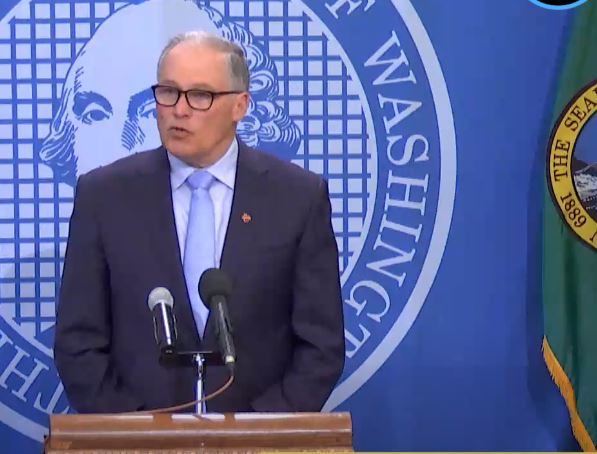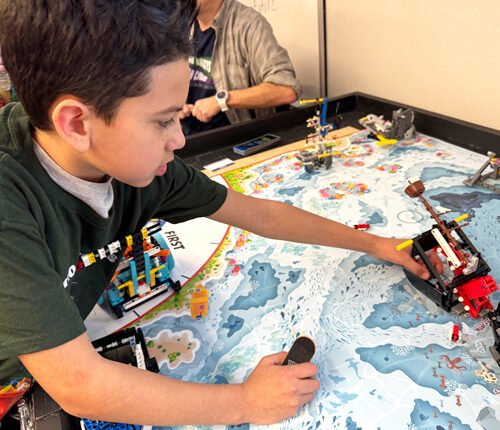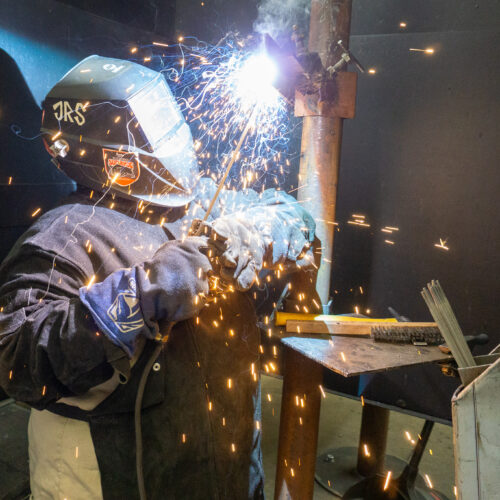
Washington Extends K-12 School Closure Through June; So Does Idaho (With Big Caveats)
READ ON
BY NWPB, KUOW & NORTHWEST NEWS NETWORK STAFF
All Washington K-12 schools will remain closed for the remainder of the current school year. That was the announcement Monday afternoon from Gov. Jay Inslee.
Districts will shift to a “distance learning model,” as outlined by the Office of the State Superintendent of Public Instruction.
Washington joins at least 14 states to have closed schools for the remainder of the current year. So far, Oregon and Idaho have not moved to close school for the rest of this school year, but both have closed schools for an extended time.
“We simply cannot take the chance of re-opening on-site instruction in this school year,” Inslee said Monday. “This school closure is part and parcel of [the] efforts not only to flatten the curve as it goes up, but to reduce the number of deaths that occur as it goes down,” he said.
The governor informed superintendents around the state of the decision in a conference call this morning.
“These are difficult times, and this is a tough day for us in Washington state,” said Superintendent of Public Instruction Chris Reykdal, who appeared alongside the governor at a news conference.
In Washington, Inslee had closed all K-12 schools beginning March 17 through April 27.
But Reykdal had predicted in a video to families released Friday that such a closure was coming.
In the video, Reykdal tried to reassure families that students would recover from this break in their usual education. Even if schools stayed closed for the remainder of the school year, Reykdal said, doing math on a white board, students would only lose 2.4 percent of their K-12 education, maximum.
“I don’t intend for it even to be a percent,” Reykdal said.
Along with the distance learning he directed districts to begin last week, he said, his department intends to work with the state legislature and Governor Inslee to “figure out how to add additional hours next year and perhaps the year after that to try to make sure that instruction happens for everybody.”
Reykdal reminded families that the whole country is in a similar position, with widespread school closures.
“Fifty million kids across the country,” he said. “We’re actually a little ahead of the curve based on our conversations around the nation. So I think we’re gonna be very competitive. I think we’re going to do a great job of this. But we have to be patient right now.”
Inslee told high school seniors that if they were on track to graduate, they have nothing to fear. “If you’re a senior in good standing, we expect that you will receive your diploma this year,” he said.
He did not discuss what would happen for the many seniors in more precarious positions, who often rely on considerable assistance from teachers and school counselors to fulfill their final credits or re-take classes.
Meanwhile, In Idaho…
Monday also brought a vote to close Idaho K-12 public schools for the rest of the school year.
The State Board of Education announced the measure to continue distance learning and protect children and their families from the spreading coronavirus.
But unlike in neighboring Washington, there are some big caveats to Idaho’s order. Some districts could open schools if social distancing rules change and local health officials approve, as Idaho Education News reported:
Other Board members pushed for as much flexibility and local control as possible.
“It’s important we give some consideration to areas in the state in which there is little or no evidence of the COVID-19,” Board member Emma Atchley said. “There are still counties with no active cases. Some with very few.”
Some Board members appeared to be reacting to an apparent slowdown in growth of Idaho COVID-19 cases over the weekend. On Monday, an Idaho Department of Health and Welfare spokeswoman told Idaho Education News local public health districts are not required to file daily reports on weekends.
Moscow School District Superintendent Dr. Greg Bailey said the so-called “soft” closure means schools are closed but learning will continue.
“We’re going to continue the education. We’re going to continue working through the internet or through packets going home,” Bailey said Monday afternoon in agree with the state board’s move.
“Our concern always is the safety of our kids and the safety of our staff. Knowing that we haven’t come close to the peak of this virus hitting us, I think they made the right choice,” he said.
But Bailey said he’s concerned about the graduating class of 2020. He said their work has to be recognized in some way – just not with a cap and gown this spring.
Paige Browning and Ann Dornfeld of KUOW, Nick Deshais of the Northwest News Network, and Scott Leadingham of NWPB contributed to this story.
Related Stories:

Immigration enforcement concerns cause mixed attendance trends in North Central WA schools
Eastmont Junior High School students make their way past the 800 wing on the way to their second period in East Wenatchee. (Credit: Jacob Ford / Wenatchee World) Listen (Runtime

Richland Lego robotics team hopes state grants won’t be put on hold
Fourth grader Sergio Preciado shows off a Lego shipwreck he helped build and code with his FIRST Lego League team, called the Dino Nuggys. The program is mostly grant funded

New Walla Walla scholarship aimed at women studying the trades
Jaquelin Sanchez, a welding student at Walla Walla Community College, is among those who can apply for a new scholarship for women in the trades. (Credit: Susan Shain / NWPB)














